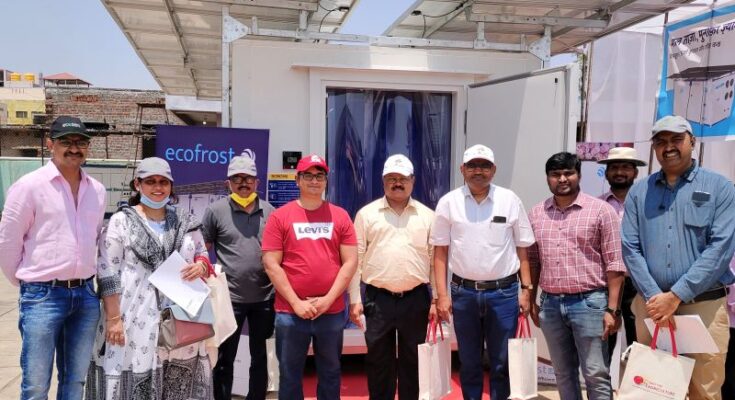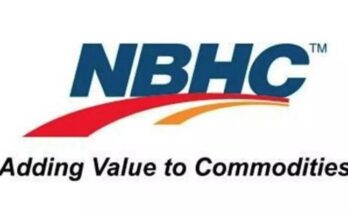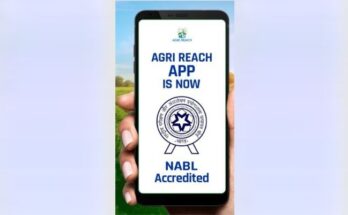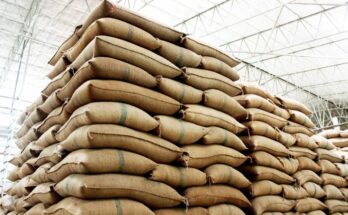Ecozen, a leading sustainable technology-led solutions company, demonstrated solar-powered cold room technology in Tomato Krishi Mela, organised by SELCO Foundation with APMAS and Deutsche Gesellschaft für Internationale Zusammenarbeit (GIZ) GmbH for tomato and allied value chains on the 5th and 6th April 2022 at Madanapalle, Chittoor, Andhra Pradesh. The primary objective of the event was to demonstrate solutions that can replicate and scale decentralised sustainable solutions and create synergy among the ecosystem actors; technology manufacturers, financiers, trainers and markets. Madanapalle is Asia’s largest Tomato Market and can hold approximately 800 – 1700-tonne tomatoes per day.
Ecozen provides technology-led solutions that revolutionise sectors with clean and smart tech. It is creating an ecosystem with scalable and sustainable technology solutions that help uplift livelihood and save the environment. The economical and eco-friendly, Ecofrost is the world’s leading solar-powered cold room technology solution from Ecozen that ensures longer shelf-life and reduces wastage of perishable products, thereby enhancing income and improving the livelihoods of the farming community.
You may also like to read: Omnivore launches new $130M venture fund focused on agritech and climate sustainability
Speaking on the occasion, Ravindra Dolare, BU- Head & President – Ecofrost at Ecozen said, “With solar-powered cold rooms, Ecofrost is a revolutionary product and is helping transform the perishable cold in India and globally. It helps farmers increase the shelf-life and reduce wastage of their produce. Tomato Krishi Mela, organised by our esteemed customer SELCO Foundation, focuses on the need for decentralised renewal energy for technologies that improve the livelihoods of our farmers. We are delighted to be a part of the same to showcase our innovation and how we play a critical role in keeping the quality of perishable products like tomatoes.”
The event was attended by various stakeholders including foundations, delegates, financial institutions, individual farmers, farmer producer organisations (FPOs), NGOs and government officials, and showcased scalable sustainable energy-driven livelihood technology solutions demonstrated by small and medium enterprises (SMEs) across on-farm and post-processing technologies for tomato and allied value chains. Technologies that focus on improving rural incomes such as solar-powered and efficient-cold storage units, sprayers, bio-fermenters, and soil testing units among other sustainable and innovative solutions. were on display to create awareness and aid in the scaling of these solutions.





